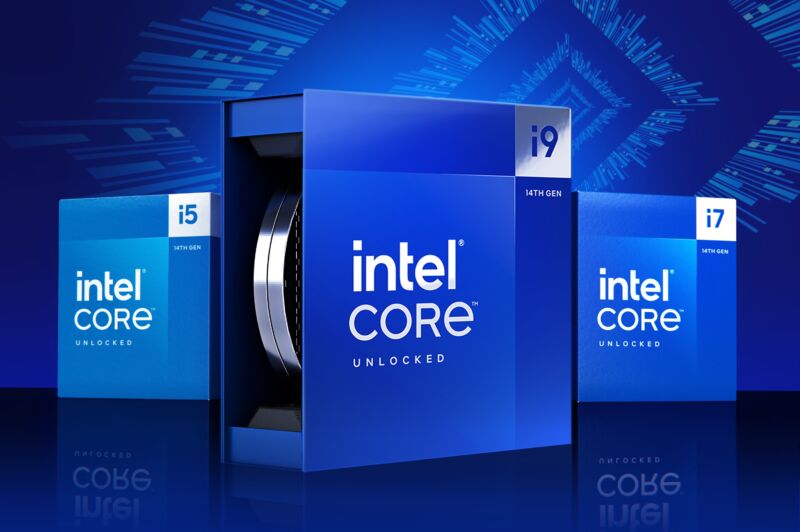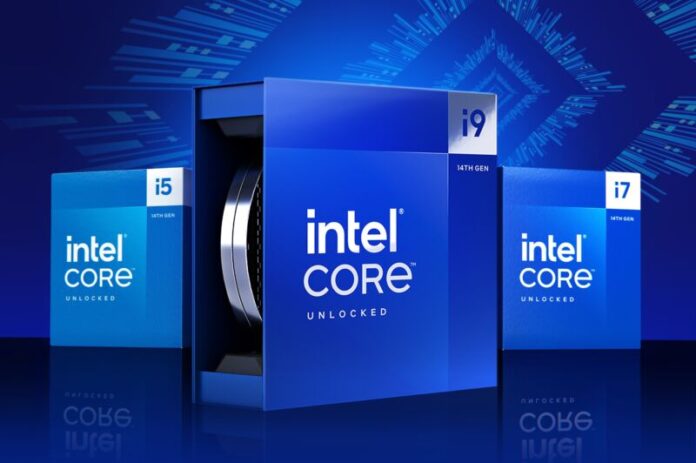
Enlarge (credit: Intel)
Intel's new desktop processor generations haven't always come with significant generational improvements in recent years, as the company has struggled with new manufacturing tech that enables big leaps in performance and power efficiency. For every major jump—the 12th-generation CPUs, codenamed Alder Lake, come to mind—you usually get several faster but less-than-thrilling iterations.
Intel is officially launching its 14th-generation desktop processors today, and they're firmly in that iterative, non-thrilling group, even compared to last year's 13th-generation chips. The good news for price-conscious PC builders is that they'll continue to work in all current 600- and 700-series motherboards after a BIOS update, and Intel isn't launching a series of new motherboards to accompany them—there aren't many compelling reasons to upgrade from a 12th-gen setup to a 14th-gen one, but it's an available option.
Even the branding Intel is using here signifies that the processors are a throwback—next-gen Meteor Lake chips for laptops and all of Intel's other chips are losing the generational and i3/i5/i7/i9 branding in favor of "Core" and "Core Ultra." By Intel's admission, the last gasp of the 14th-generation branding here is a nod to how similar they are to the 13th-generation chips that preceded them (and, for that matter, the 12th-gen ones before that).
Read 9 remaining paragraphs | Comments
Ars Technica - All contentContinue reading/original-link]




